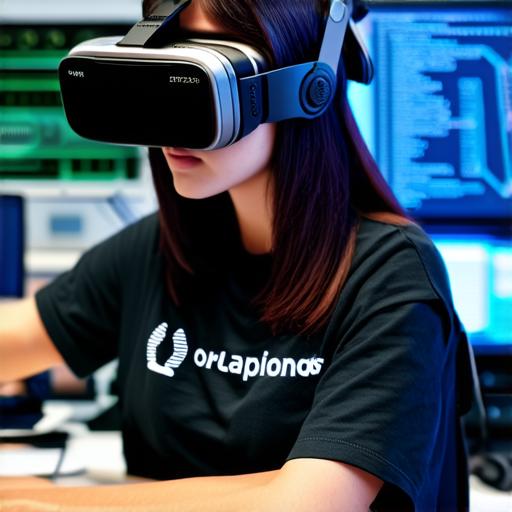How to become a virtual reality developer: Education and Training

Education Requirements for VR Development
Before you can start creating virtual reality experiences, you’ll need to have a strong foundation in programming and computer science. Most VR developers have a bachelor’s degree in a related field such as computer science, game design, or engineering. Some also have a master’s degree or even a PhD. In addition to a degree, there are several other educational requirements for VR development.

- Programming skills: You’ll need to be proficient in at least one programming language such as C++, Java, or C. You should also have experience with game engines like Unity or Unreal Engine.
- Math and science: VR development requires a strong understanding of mathematics and science, including linear algebra, calculus, and physics. This knowledge is used to create realistic movement and interactions in virtual environments.
- Design skills: Good design skills are essential for creating engaging and immersive VR experiences. You should have experience with 3D modeling, texturing, and animation.
- Familiarity with VR hardware and software: To develop VR experiences, you’ll need to be familiar with the hardware and software used in VR development, such as Oculus Rift, HTC Vive, and Unity.
Training Requirements for VR Development
In addition to education, there are several training requirements for becoming a virtual reality developer. These include:
- Internships or entry-level positions: Many VR developers start their careers as interns or in entry-level positions at game development studios. This allows them to gain hands-on experience and build their portfolio of work.
- Online courses: There are many online courses available that can help you learn the skills needed for VR development. These courses cover topics such as programming, design, and VR hardware and software.
- Bootcamps: Bootcamps are intensive training programs that provide a more immersive learning experience. They typically last several weeks or even months and cover all aspects of VR development.
Best Practices for Getting Started in VR Development
Now that you have an idea of the education and training requirements for becoming a virtual reality developer, let’s look at some best practices for getting started on your journey:
- Build a strong portfolio: Your portfolio should showcase your skills and experience as a VR developer. This can include screenshots, videos, and demos of your work. Having a strong portfolio can help you stand out to potential employers and clients.
- Network with other developers: Networking is an important part of any career, and it’s especially important in the VR industry. Attend conferences and meetups to connect with other developers and learn about new opportunities. Join online communities and forums to connect with like-minded individuals.
- Keep up with the latest technology: The VR industry is constantly evolving, so it’s important to stay up-to-date with the latest technology and trends. Read industry publications, attend webinars, and follow thought leaders in the field. Keeping up with the latest technology can help you stay ahead of the competition.
- Collaborate on open-source projects: Open-source projects are a great way for new developers to gain experience and build their portfolio. Contributing to open-source projects can also help you connect with other developers and learn about new technologies. You can find open-source VR projects on websites like GitHub and SourceForge.
Real-Life Examples of Successful VR Developers
To illustrate the points being made in this article, let’s look at some real-life examples of successful virtual reality developers:
- David Hellyard: David is a VR developer who has created some of the most popular VR games, including “Lucky’s Tavern” and “AaaaAAA!”. He started his career as an intern at a game development studio and worked his way up to become a successful VR developer. David attributes much of his success to his strong work ethic and dedication to learning new skills.
- Palmer Luckey: Palmer is the founder of Oculus VR, one of the largest VR hardware companies in the world. He started out as a student at the University of California, Berkeley, where he developed the first VR headset, known as the DK1.